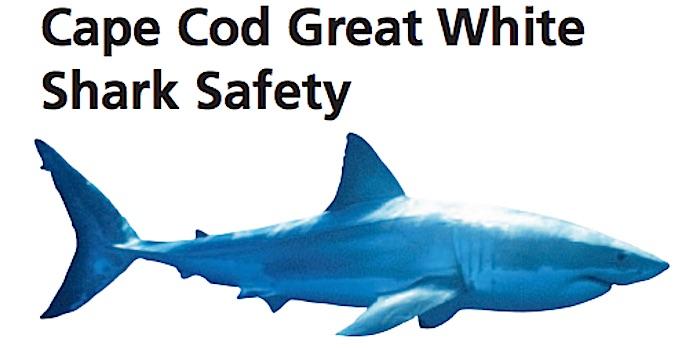
Learn how to stay safe around great white sharks at Cape Cod National Seashore/NPS
While thousands of visitors will be racing to Cape Cod National Seashore in Massachusetts for the Fourth of July Weekend and their summer vacations, park officials hope they'll take a few minutes to learn about great white sharks that are showing up more and more often in the seashore's waters.
Cape Cod National Seashore Superintendent George Price reminds visitors and residents that they share the national seashore with native wildlife. Cape Cod's great white sharks and gray seals have gained local and national attention in recent years. Both species existed long before Cape Cod was settled or became a popular destination, and in recent years their numbers have increased. Sharks have existed for more than 400 million years. As top predators, sharks are critical for maintaining a healthy and balanced marine ecosystem.
Seals are the major prey species for the great white shark, and as the seal population increases, the great white sharks have become more numerous. In recent years there have been confirmed reports of great white sharks feeding on seals close to shore, as well as great white shark sightings from spotter planes flying along the Outer Cape and near swimming beaches. While it is rare for a great white shark to bite a human, it did occur in Truro in 2012.
To stay safe and to protect wildlife, seashore officials ask that you:
- Not swim near seals.
- Swim close to shore, where your feet can touch the bottom.
- Swim, paddle, kayak, and surf in groups.
- Do not swim alone in the ocean at dawn or dusk. Avoid isolation.
- Limit splashing and do not wear shiny jewelry.
- Follow instructions of lifeguards. Become familiar with the beach flag warning system. Take time to read signage at the beaches.
The national seashore, the towns of Cape Cod and the Islands, the Massachusetts Shark Research Program, and the Atlantic White Shark Conservancy have worked together to produce shark advisory signs for beaches, and brochures that provide education and safety tips for beach users. Brochures about shark information may be obtained at all National Park Service beaches and be seen on the park’s website.



Add comment